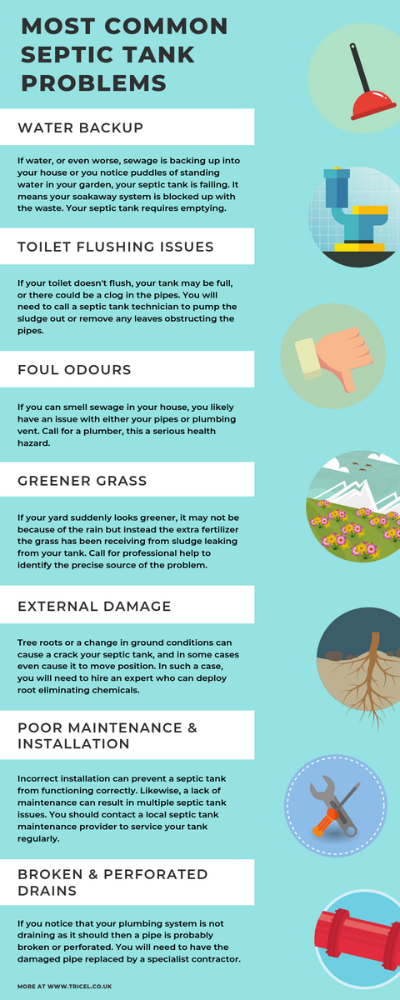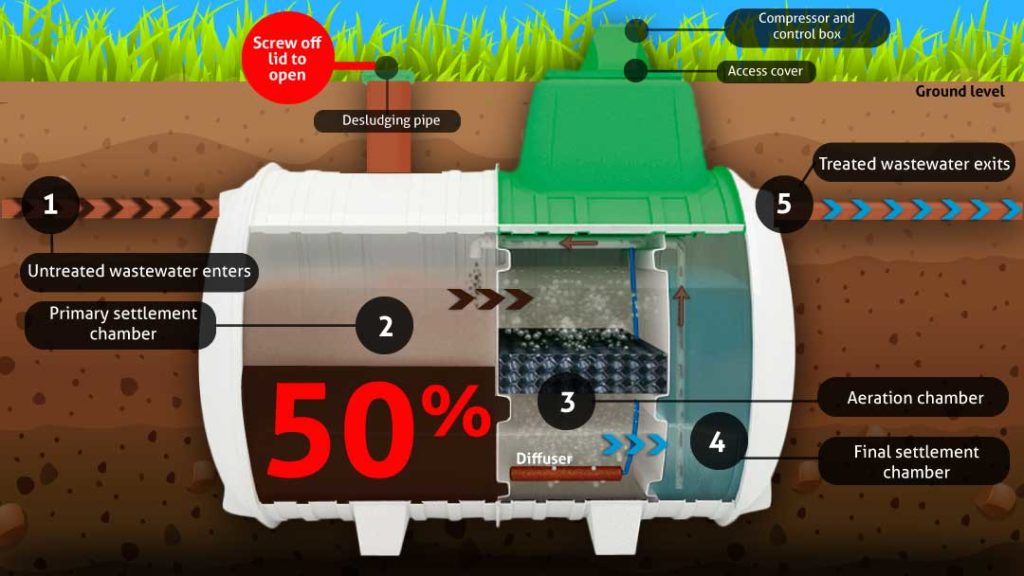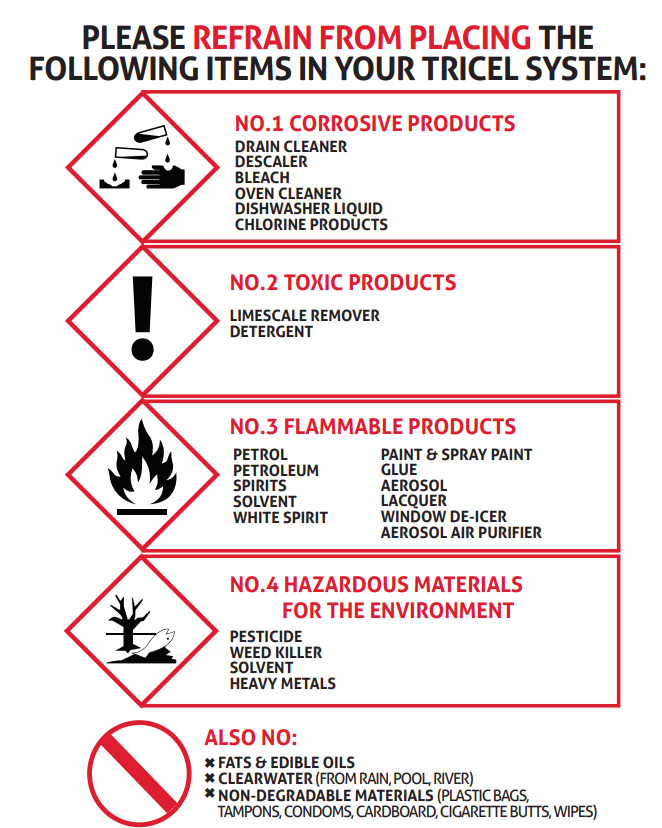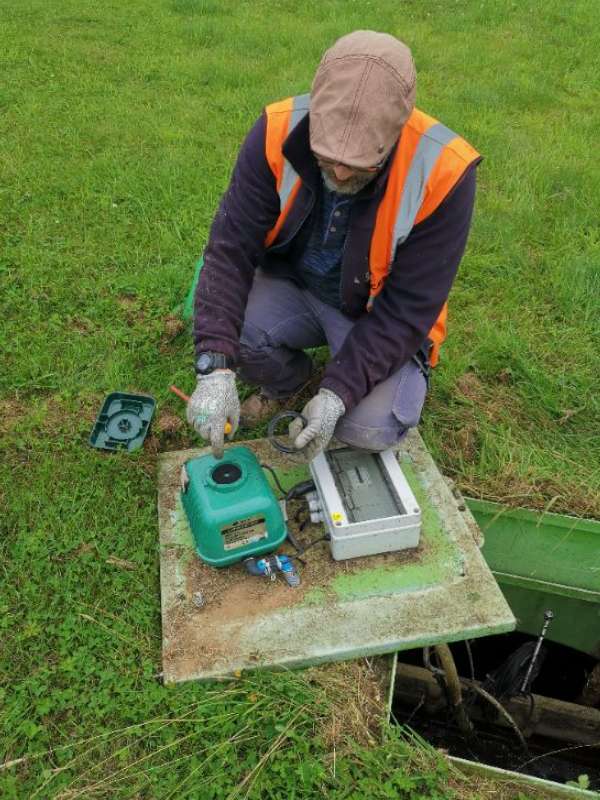
Sewage treatment
Sewage Treatment Plant Troubleshooting
Home » Maintenance » Sewage Treatment Plant Troubleshooting
- May 25, 2023
When properly installed, operated and maintained Tricel Novo sewage treatment plants will give you many years of trouble-free service.
Common sewage treatment plant problems:
For a full list of possible issues (such as alarm, odors, pump or blower) the possible causes and the corrective actions to take, please refer to the Sewage Treatment Plant Troubleshooting section on our manual (page 33 to 36).
Most common septic tank problems
WATER BACKUP
If water, or even worse, sewage is backing up into your house or you notice puddles of standing water in your garden, your septic tank is failing. It means your soakaway system is blocked up with the waste. The septic tank requires emptying.
TOILET FLUSHING ISSUES
Does your toilet not flush? The tank may be full, or there could be a clog in the pipes. You will need to call a septic tank technician to pump the sludge out or remove any leaves obstructing the pipes.
ALARM
All plants come fitted with an alarm, and a buzzer will sound to alert of a fault in the air blower or discharge pump. You can mute the buzzer until we resolve the problem (in the control box). Once there are no problems left, the alarm will reset automatically and you must swtch off the mute switch. A qualified person shall do all electrical work.
Contact us if your alarm is buzzing.
FOUL ODOURS
If you can smell sewage in your house, you likely have an issue with either your pipes or plumbing vent. Before taking any corrective action, always positively identify the real source of the odour:
- If the odour is coming from inside the house – you need to call a plumber.
- Check if the odour is coming from another outside source such as a storm drain.
- All wastewater disposal plants vent gases back through soil pipe and out roof vents. Improperly installed roof vents can cause odor problems.
- Traps/U-bends in drains prevent odors from entering the home. To function they must contain water and be sealed correctly.
For any other request don’t hesitate to contact us directly.
GREENER GRASS
In case your yard suddenly looks greener, it may not be because of the rain but instead the extra fertilizer the grass has been receiving from sludge leaking from your tank. Call for professional help to identify the precise source of the problem.
Sewage treatment plant troubleshooting: precautions to take
To ensure the continuation of the plant performance, we recommend taking the following precautions:
- High volume discharges such, as those from swimming pools and Jacuzzi’s must never enter the plant. Surface water must not enter the plant.
- Do not allow large quantities of chemicals to enter the plant including:
- Water softener regenerate.
- Disinfectants.
- Strong Acids and Alkalis, or Photographic Chemicals.
- Fat, Oil or Grease.
- Petrol or diesel.
- Pesticides.
- Large quantities of milk, alcohol or food.
- Large quantities of bleaches or cleaners.
- Baby wipes, cosmetic and cleaning wipes.
- Sanitary towels/Tampons.
- Kitchen paper.
- Nappies.
- Medication.
On HydroBuild website you will be able to order a range of organic sewage treatment system maintenance products like the SeaChem products. We design them specifically to give your tank a natural boost and replenish the bacteria which grows in your system to break down effluent.
These products will keep your septic tank healthy and can help reduce odours which can stem from a malfunctioning septic tank.
Sewage Treatment Plant Troubleshooting: A constant supply of electricity
An electrical connection to the wastewater treatment plant must be maintained for it to function correctly.
This ensures that the plant has a continuous air supply and where necessary the discharge pump will operate.
Should the plant be used intermittently or if extended periods of non-use are expected, we recommend that the plant always remains on and in operation.
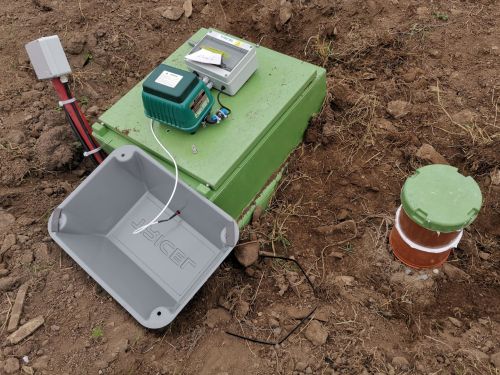
De-sludging the Tricel Novo
The de-sludging of the Tricel Novo plant is the responsibility of the homeowner.
You need it when the sludge is occupying 50% of the volume of the primary chamber.
If you need to de-sludge it should be done as soon as possible. For health and safety reasons, we strongly recommend the de-sludging to be done via the use of a licensed company.
More info about desludging septic tanks and wastewater treatment plants on this page.
Sewage Treatment Plant Troubleshooting: Regular maintenance
How to maintain a Tricel Novo?
Regular maintenance can be done by the homeowner – checking the vents
- The vent around the base of the blower housing guarantees a fresh supply of air to the air blower.
- The vent under the de-sludging cover allows gas to escape and stops the tank from becoming pressurised. You should check all vents to make sure nothing blocks or obscures. Ensure the air blower is working by listening for a gentle hum when standing beside the plant. Inspect pipework for blockages if necessary.
Annual maintenance
The maintenance of the Tricel Novo sewage treatment plant is a simple process. We recommend an annual inspection to validate the proper functioning of the wastewater treatment system.
Please note: maintenance should be carried out by a suitably trained person. Sewage and sewage effluent can carry micro-organisms and gases harmful to human health.
Any person that takes care of the maintenance on the plant must have the proper training. Suitable protection equipment including gloves, goggles etc. should be worn at all times. Always remove contaminated clothing and protective equipment after completion of work. Wash hands and face prior to eating, drinking or smoking.
A certain amount of plant maintenance is required, on an ongoing basis to ensure that the plant is working correctly. This is the responsibility of the homeowner.
Yearly maintenance should be done by a qualified person
The Tricel Novo plant will require a full service every year to guarantee the efficiency of the plant is maintained. During routine servicing, the following items are checked (if applicable):
- Sludge return
- Functionality of blower and/or pump
- Pump pressures
- Pump filters are replaced
- Pump Diaphragm
- Alarm
- Ventilation function tested
- Diffuser monitored to check for dispersion of air
- Tricel covers and locks
- Manifold adjusted

Articles you might be interested in
Meet our team
To find a technician in your area, visit our page
talk Sewage Treatment
To speak to one of our agents online, click here
Ask for a quote
Request a free quote today to have a quote that meets your project!
Get in touch
